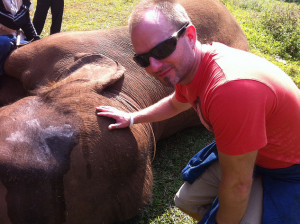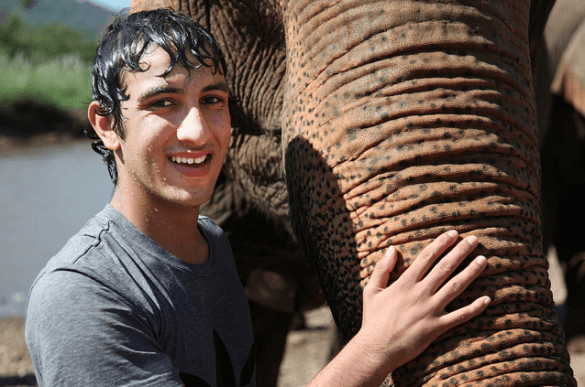1) Hi Nada, can you tell us what you've been up to since graduating from THINK Global School in 2022? Since graduating in 2022, I've been pursuing a passion I found while at TGS, sustainability, and I am currently majoring in engineering in renewable energy systems at Al Akhawayn University, in Ifrane, Morocco. But there is way more than that! I've had a chance also to explore the world of...
Read More ONE OF THE MANY THINGS we try to do in Science as we travel around the globe is examine regional environmental value systems and explore local issues in conservation management. We began this investigation in Ecuador with our trips to the Amazon rainforest and the Galapagos islands.
ONE OF THE MANY THINGS we try to do in Science as we travel around the globe is examine regional environmental value systems and explore local issues in conservation management. We began this investigation in Ecuador with our trips to the Amazon rainforest and the Galapagos islands.
We have continued the tradition this term here in Thailand by examining the controversial situation with domesticated elephants.
Elephants are a national symbol here in Thailand, long used for labour and battle – now almost exclusively for tourism. With the logging ban in 1990, thousands of domesticated elephants were out of work, and their mahouts turned to tourism or elephant-begging in the streets. This has brought elephant care and treatment into the international spotlight and has been widely criticized, especially in the West.
Some elephants were given stimulants to increase their productivity, and claims of widespread abuse were publicized. Videos were released on the internet documenting an apparently ‘typical’ wild elephant training or crushing ritual called the pajaan. These videos created international outcry for the savage and cruel treatment inflicted upon elephants.
But, was this the real story? TGS decided to examine this issue.
In January, we went to Elephant Nature Park, a sanctuary for mistreated and abused elephants, and learned some of the more tragic histories of Thailand’s elephant working class. We were even shown one of the elephant crush videos, which had a heavy impact on staff and students alike.
In a more subdued humor, we then spent the rest of the day feeding and washing elephants in a river. Was this the whole story though? These elephants at Elephant Nature Park were ‘safe’ now, but how does preaching “don’t touch the elephants” help improve elephant treatment in the ubiquitous juggernaut of elephant tourism in Thailand?

TGS decided to investigate further.
In our recent trip to the Golden Triangle, we paid a visit to the research site of Think Elephants International (TEI), an NGO run by Dr. Joshua Plotnik from Cambridge University. It is here that Josh and his team investigate elephant behavior and intelligence. TEI works alongside mahouts and a local tourism company to foster positive change in the whole tourism industry.